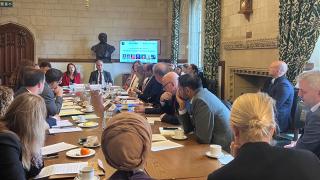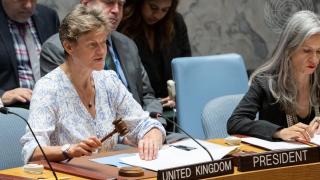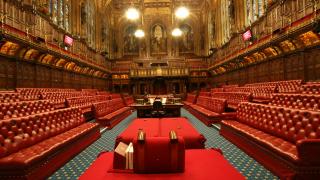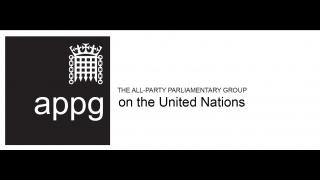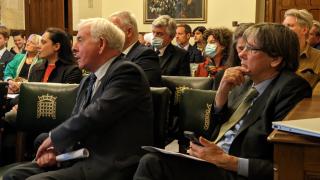On 21 October, the All-Party Parliamentary Group on the United Nations was addressed by Mr James Stewart, Deputy Prosecutor of the International Criminal Court (ICC) and Ms Elizabeth Evenson, Senior Counsel of Human Rights Watch’s International Justice Program. Chaired by Lord Hannay, the meeting focussed on the critical challenges facing the ICC, in particular the issue of bolstering state support for the Court.
Mr Stewart remarked that the conditions under which the ICC may become involved with a state can hamper its effectiveness and neutrality. He highlighted the need for state cooperation in three key areas: arrests, investigations and witness protection. Witness protection was emphasised as particularly important. Their assistance is vital for the successful prosecution of cases but they are often rendered vulnerable through their interaction with the Court. The cooperation of states and non-state actors to ensure effective witness protection is therefore crucial to the ICC's operation.
Ms Evenson addressed the recent accusations of bias directed at the ICC, most recently during an African Union summit which discussed its approach to the Court. Highlighting the need for a framework of public and diplomatic support, Ms Evenson praised the UK government for its public commitment to the Court. She also urged the UK government to engage with key African partners in reinforcing collective support for the Court amongst all states parties to the Rome Statute. Addressing the issue of perceived 'double standards', Ms Evenson called for the UN Security Council to pursue a more consistent approach to the ICC, particularly with regard to the referral and follow up of cases.
These addresses were followed by a wide-ranging question and answer session. Responding to the the suggestion that the ICC suffers from a perception problem amongst African states, Mr Stewart encouraged states to raise concerns at the upcoming Assembly of States Parties (the management oversight and legislative body of the Court, made up of representatives of the parties to the Rome Statute). Ms Evenson argued that the Court could counter such criticism with improved outreach and a greater presence in those regions which are the focus of the Court's work.
The speakers were also questioned as to whether the pursuit of justice impinges on peacebuilding efforts. Mr Stewart asserted that the ICC fully investigates the implications of its work before taking any action. Ms Evenson stated that this view is not always borne out by the facts on the ground.

